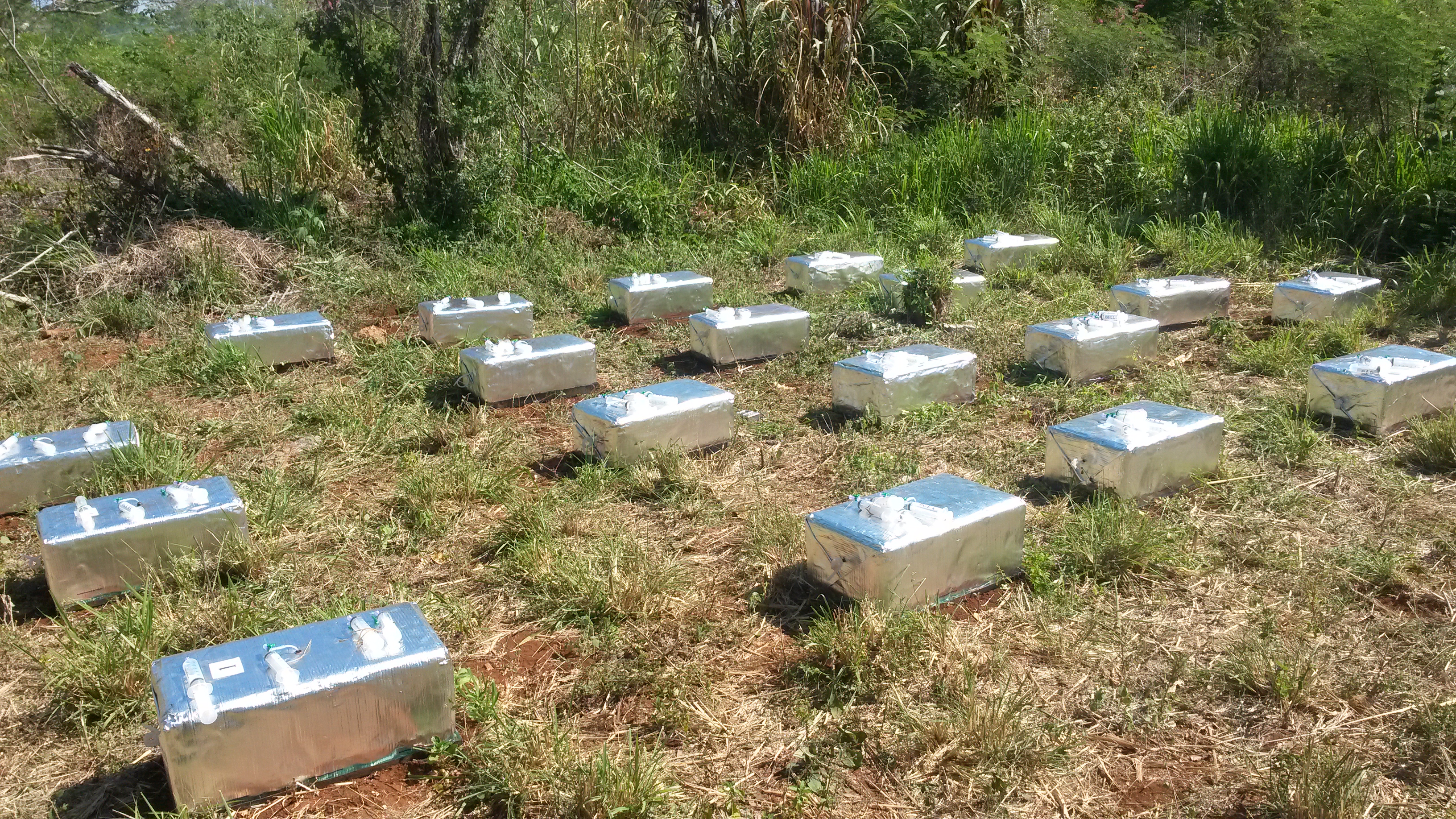Mexican research group resorts to Embrapa to measure greenhouse gases in the fields
Mexican research group resorts to Embrapa to measure greenhouse gases in the fields
An area of Embrapa's expertise that has been gaining recognition is studies on greenhouse gas (GHG) emission and mitigation, an area in which the researcher Bruno Alves, from Embrapa Agrobiology (Seropédica, RJ), has had expressive participation. Bruno has recently been to Universidad Autónoma de Yucatán (UADY), in Mexico, in March, with the aim of advising on a local project to assess the impact of the introduction of Leucaena leucocephala into pastures with regard to GHG emissions and animal production.
On the occasion, the researcher advised the members of the research group on Ruminant Nutrition in Tropical Environments in field measurement techniques. The group is coordinated by professor Francisco Solorio, from UADY. To measure the impact of leucaena in pastures, chambers were placed to monitor GHG emissions from the excreta of animals that grazed areas with the legume tree and of other animals that grazed in areas without the plant. “We know that Embrapa is an international reference in the area and I am pleased to be remembered, in a scenario in which several international groups stand out”, revealed the researcher.
Bruno is a member of Embrapa's climate change portfolio, member of the Brazilian Panel on Climate Change, and responsible for the subsector report on N2O Emissions from agricultural soils, of the National Greenhouse Gas Inventory, coordinated by the Brazilian Ministry of Science, Technology, Innovations and Communications (MCTIC). He is also part of the Roster of Experts for the United Nations Framework Convention on Climate Change.
The general head of Embrapa Agrobiology, Gustavo Xavier, highlights that the researcher's visit to Mexico was an opportunity to take partnership, know-how and expertise to the university's animal production team, in order to contribute to furthering research on pasture emissions in that country. “Moreover, it is also an opportunity to obtain support information to update the climate change portfolio and identify sign that can boost progress in the area”, Xavier points out.
Translation: Mariana Medeiros
Liliane Bello (MTb 01766/GO)
Embrapa Agrobiology
agrobiologia.imprensa@embrapa.br
Phone number: +55 21 3441-1500
Further information on the topic
Citizen Attention Service (SAC)
www.embrapa.br/contact-us/sac/

